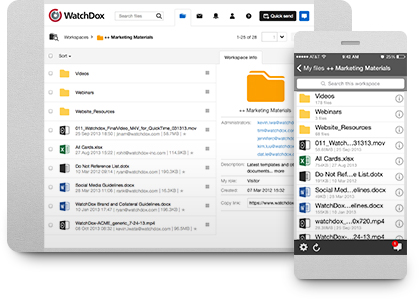BlackBerry has faced a lot of challenges in recent years, but it’s always held the strong suit in enterprise services. The Toronto, Ontario area company continues to trump other multi-platform enterprise mobile management players, and claims to still serve as many customers as its top three competitors combined.
Governments, especially, are still BlackBerry loyalists–with all of the G7 governments and 16 of the G20 governments using BlackBerry services such as BES12, the latest version of the BlackBerry Enterprise Service (BES) platform.
 But BlackBerry cannot afford to sit on its enterprise laurels, and nobody knows that better than EVP of Enterprise Engineering Billy Ho, who leads the company’s product strategy for its enterprise software offerings. During his relatively short time in that post, Ho has already lead a number of BlackBerry’s strategic initiatives–all of which share a common goal of making BlackBerry services more accessible and compatible with other mobile devices and services.
But BlackBerry cannot afford to sit on its enterprise laurels, and nobody knows that better than EVP of Enterprise Engineering Billy Ho, who leads the company’s product strategy for its enterprise software offerings. During his relatively short time in that post, Ho has already lead a number of BlackBerry’s strategic initiatives–all of which share a common goal of making BlackBerry services more accessible and compatible with other mobile devices and services.
Pushing BES12, more government certifications
One of those initiatives was opening up the BlackBerry 10 operating system to enable other mobile device management (MDM) companies to directly manage BlackBerry 10 devices. And more recently, Ho led in the development of BES12, which aims to streamline the management of all device platforms and deployment models like BYOD and COBO.
In the US, Billy Ho also played a key role in working with Defense Information Systems Agency (DISA) to secure Full Operational Capability (FOC) for BlackBerry 10 to run on US Department of Defense networks. The FOC designation builds on BlackBerry’s “Authority to Operate” certification, and enables government users with a BlackBerry 10 smartphone connected with BES to securely access email, data, apps and other DoD network resources.
Besides expediting BlackBerry’s FOC certification, Ho also achieved Security Technical Implementation Guide (STIG) approval from DISA for BlackBerry’s Secure Work Space for iOS and Android – a mobile data containerization feature that separates work and personal content on third-party smartphones and tablets.
Expanding BlackBerry’s multi-platform appeal
To expand on BlackBerry’s Android offerings, Ho earlier this year led discussions with Google to bring BlackBerry enterprise services to Google’s own data containerization service, called Android for Work.
“Android for Work with BES12 will provide customers with another option to enhance their mobile security…and the peace of mind that they will not have to relinquish any control over corporate data, sacrifice user experience or introduce more complexity into their environments,” said Ho.
 Along with BlackBerry CEO John Chen, Ho also played a role in the company’s recently completed acquisition of Israel’s WatchDox, which provides a data security system that limits access to documents on a server or in the cloud. (See links below.) Although BlackBerry hasn’t reported how much it is paying for WatchDox, industry sources say it is about US $100m.
Along with BlackBerry CEO John Chen, Ho also played a role in the company’s recently completed acquisition of Israel’s WatchDox, which provides a data security system that limits access to documents on a server or in the cloud. (See links below.) Although BlackBerry hasn’t reported how much it is paying for WatchDox, industry sources say it is about US $100m.
“Our expansion into cross-platform functionality only deepens our commitment to secure mobility,” said Ho of the acquisition. “It gives BlackBerry a strong foundation to build solutions for a customer base that is already strongly aligned with BlackBerry’s core values of security and reliability.”
Ho says that WatchDox’s products will be offered as part of BlackBerry’s security packages for customers. Because WatchDox supports all devices and platforms, its integration will broaden BlackBerry’s appeal for companies that may not be exclusively using BlackBerry devices.
BlackBerry’s Ho was one of the honorees in the annual Mobile Star Awards last fall, and BlackBerry also won several awards.
.
Recent Related News:
.
BlackBerry completes WatchDox acquisition
BBM 2.0 for Android, iOS, and BlackBerry brings location sharing, Dropbox, and forums




